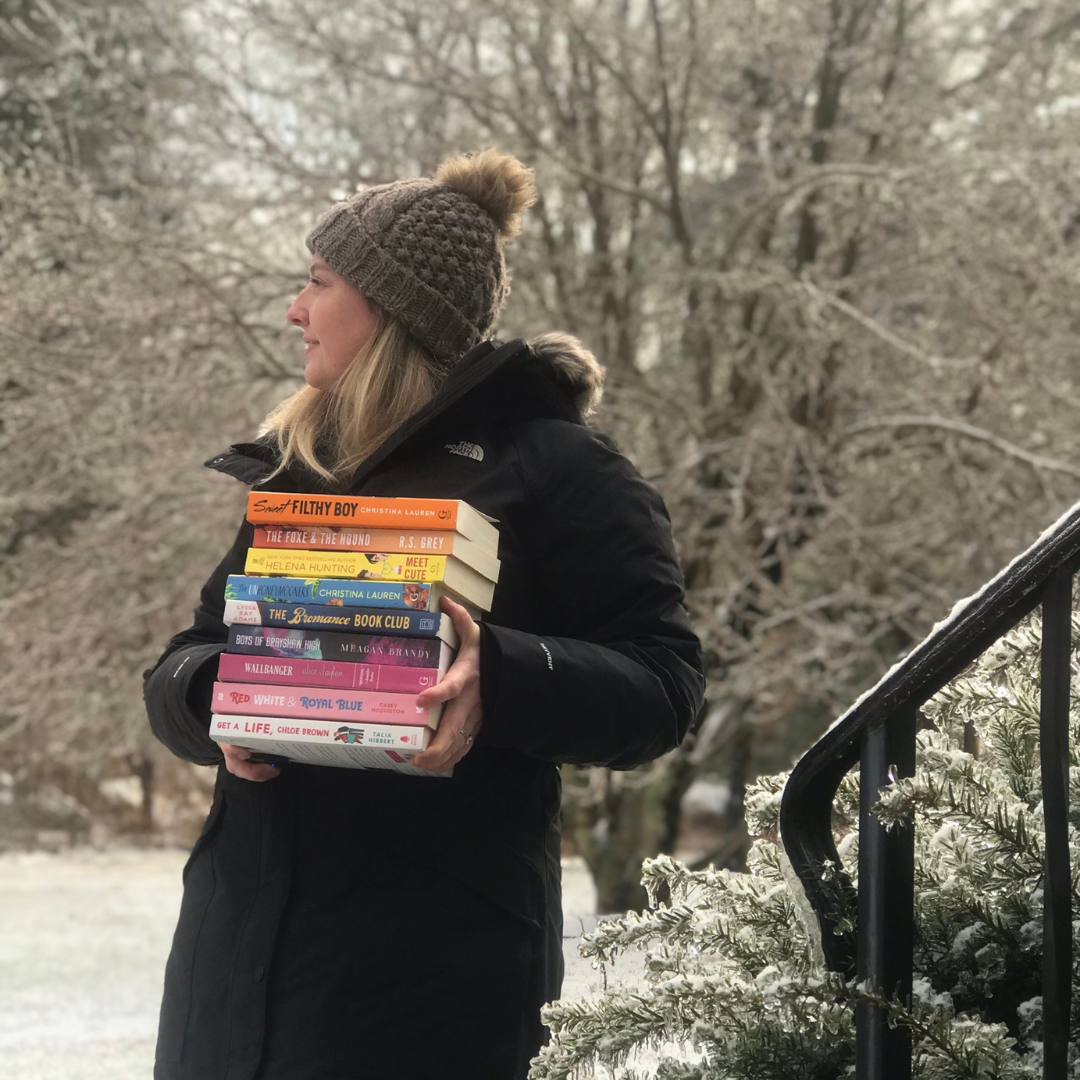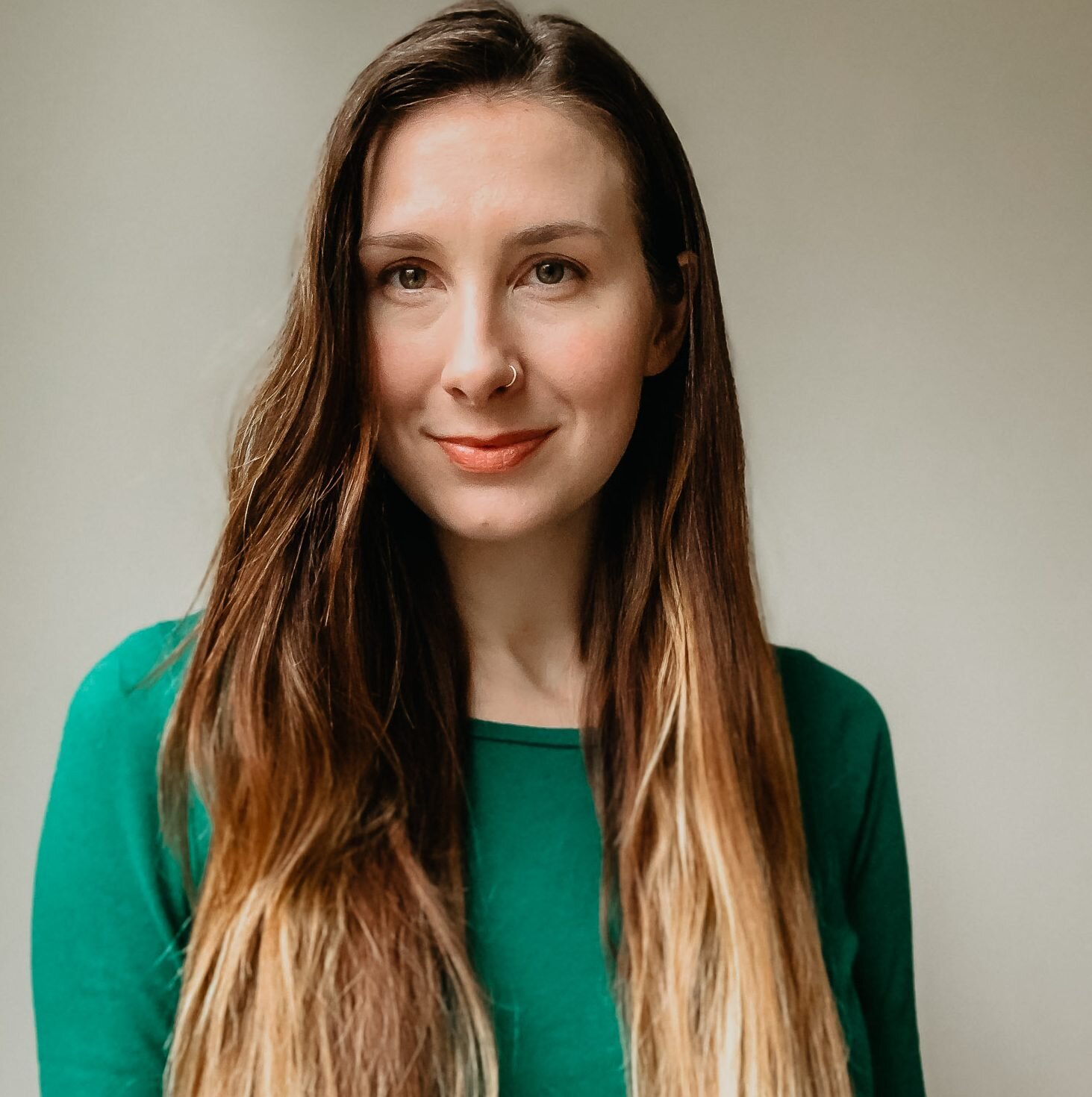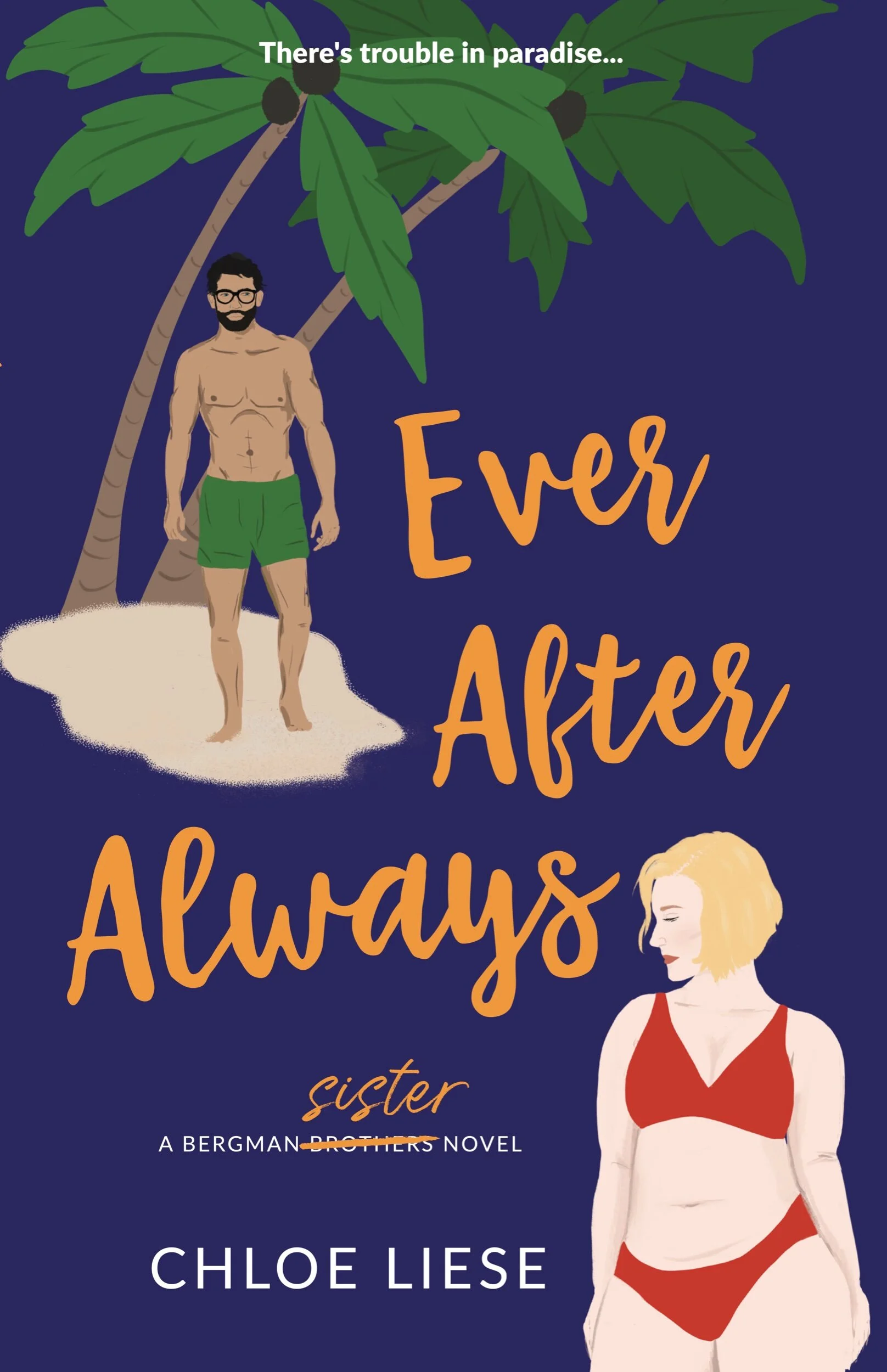Author Interview: Chloe Liese
Hello all! Happy Monday and release day to Chloe Liese and her new book, They're Strictly Friends. I have had the pleasure of getting to know Chloe through bookstagram. She is such a force; completely passionate about feminism, the romance genre, and diversity. I am so honored she agreed to letting me interview her and pick her brain! They're Strictly Friends is out today & available on kindle unlimited, details below the interview!
Mollie: Why did you choose to write romance?
Chloe: Romance is in my mind the most all-encompassing genre in terms of its portrayal of the human experience. What other genre covers people’s pasts, insecurities, hopes, vulnerability, intimate lives, plans for partnering and possibly parenting, growth as they fall in love and figure out life with the person they choose? As a writer, I adore the creative potential that gives me to explore human experience, to delve into corners of representation that maybe not too many romances have historically. As a reader, I’m always hunting for books that portray not only the euphoria and the highs of love, but the “reality” and the “tough” side, too. I also believe in body and sex positivity, so I prefer to read and only write realistic bodies and sex, because I think seeing bodies like ours having intimacy like real humans do—which requires communication, trial and error, laughter and grace—helps us feel more self-loving and empowered as individuals and lovers. Our culture doesn’t generally celebrate the imperfection of bodies and the work of good intimacy—in many fictions and all of Hollywood it’s airbrushed bodies and simultaneous orgasms in dim lighting. That’s not reality. Real love is work, relationships are labors of love. I love writing about that work and the reward it brings. Romance is the place to do that!
M: I love this, it encompasses all the reasons why I love reading romance. Reading about human interaction, the highs and lows of relationships, and intimacy, all with a feminist lens.
Describe your writing process.
C: It usually starts with an idea of two people and their dynamic—I picture an initial scene between them that captures their energy (enemies to lovers, friends to lovers, etc.). From there I usually flesh out their characters in my heads a bit, and find myself picturing subsequent scenes. It’s all rather cinematic for me—I “see” my books a lot at first and as I write them it’s very visual. Once I’ve got a sense of who these people are, their story arc is pretty clear to me—I know generally what’s going to happen and I definitely know where they’re going to end up. Then I dive into one of their points of view (POV) that’s calling to me more immediately, and begin writing, feeling, and experiencing from their perspective. I grew up with a theater PhD professor for a dad and got dragged to lots of live theater, sat in a number of classes of his talking about motivation and plot and beats and all thespian jargon. Then I ended up studying theater as a minor in college to and I think it’s served my writing well for Dual POV writing because I get into a character’s head and think about motivation: “Okay, now what? She just said this. He just did that. How do I feel about this? What do I say next? What’s driving me?” A lot of readers say my characters feel real and well developed, and I think it’s because their behavior reads as plausible. They’re humans who mess up and have particularities and foibles and endearing quirks. I write from their perspective and flesh those nuances out, then let those idiosyncrasies drive the specific scenes forward to the ending I have planned out. Then I walk away, avoid it for a few weeks, and come back to tweak my language so it sounds right. I read my book out loud and catch repetitions in language and sentence structure and dialogue. I weed out poor wording and weak tangential moments, and overall tighten it up. Then I hand it to the editor who makes it shine!
M: Did you always want to be a writer?
C: I’ve actually never wanted to be a writer, not in the sense that I aspired to publish books. I’ve just always needed to write. I have Autism Spectrum Disorder (that last word, disorder, I would frankly much prefer wasn’t there at all because I do not see neurodivergence as a disorder but simply as a difference) or ASD, formerly aligned with Asperger’s. Part of ASD for me is that I don’t always process my ideas and feelings verbally in the moment—I need time between receiving input and offering output, time for my thoughts/emotions to percolate from very deep places up to surface level, and writing has always been the tool I’ve used to do that. I think I realized I wanted to be a writer when I’d already written a few books, if that makes sense. I simply had these stories beating inside my brain and heart, so I wrote them because they wouldn’t shut up. Then when I got done I realized my books weren’t half bad and I guess if you read as much as I do you absorb a decent capacity for writing and storytelling, so why not give publishing a go. So I did. I reworked them after some time away, polished them a bit more, hired an editor, and shared them and I’m so glad I did.
M: All of your books showcase diversity, why is this something that is important to you?
C: When you grow up feeling…peripheral like I did, I think you simply have an empathy and awareness for appreciating and noticing difference. I was only recently diagnosed with ASD, and it answers a lot of questions about why childhood and adolescence felt so isolating. While I wish I understood this about myself earlier in life, I see it as a gift in that I tend to see other people who are being marginalized or misrepresented or underrepresented, and I care about learning their story and writing it well. I also believe, as I said above, in body and sex positivity, and I truly believe that part of increasing awareness, inclusion and acceptance needs to extend to romance—to showing that every person is desirable and lovable, sexual and beautiful exactly as they are.
M: You can always put into words what I have a hard time saying. Not just romance but books and other forms of media can have a huge impact on how people see themselves and how they identify and relate to others. It is so important to have representation and show inclusivity.
Can you share what you’re working on now?
C: I just got notes back from my editor on an #OwnVoices romance about a woman with ASD who just doesn’t know it…yet. I’ve read a few books featuring women with autism but I’ve yet to read one that spends time exploring the journey toward diagnosis and what you do in its wake, particularly in the context of romance. I wrote this story for me but also for the many women out there who receive late diagnosis of ASD. I’ll be submitting it to agents in the new year! And I’m also of course always tinkering on my Tough Love books. Teo’s story’s written already, but I’ve decided to change a few things about it. I’m already deeply enjoying that rework because Teo’s one of my favorites. Who doesn’t love a clean-eating, tatted, muscle-beach teddy bear of a guy, with a foul mouth and a heart of gold? He’s a walking paradox, and I love that.
M: I am SO very excited to hear you are writing an #OwnVoices romance! I have always had a curiousity for Teo while reading the original Tough Love series.
How many other writing projects do you have in the works?
C: In addition to the #OwnVoices I’m querying, I have at least another book after Teo’s. If you’ve read They’re Strictly Friends you’ve met Noli by now, who is a ridiculous, unfiltered, absolutely lovable human. Her book is after Teo’s. I’m on the fence about whether I close the series then or carry on with a few other side characters I really enjoy. We’ll see!
M: Why did you decide to self-publish over going the traditional route?
C: I guess I just wanted to get my books out there. While I’m a fairly cautious and risk averse human, when I set my eye on something, I tend to need it to happen. I just wanted to do it already, and I knew the querying to publishing timeline was long frankly. I had my books written, I’d found an editor I liked. My friend’s a fantastic cover designer, and I wanted a lot of control over my messaging, my brand, my identity as an author and storyteller. Self-publishing felt like the right thing to do at the time. That said, now that I have all that established, I like the idea of broader reach, new insight into my writing and approach, and the fresh challenge of publishing traditionally. I’m excited to pursue finding an agent and publishing traditionally, and I’m also very happy with my self-publishing journey, with no plans to end that any time soon, either.
M: This year, you published your first book and subsequently three more, what has been the best and worst things about putting your work out there?
C: I’d say the worst part was starting. There was lots of behind the scene learning about publishing platforms, ads, keywords, categories—it’s just a nauseating amount of information that you tell yourself you have to get right or “I will fail!” Which isn’t true, but until you get the process under your belt, it’s just insanely overwhelming. Not to mention, my social media presence was small so I cold-called (emailed) hundreds of readers, bloggers, bookstagrammers and pled my case, asked them to take a chance on me. It was really vulnerable, and the initial feedback—good and bad—on my first book felt deeply personal. The best part about putting myself out there is that I’ve now connected with a lot of incredible people who value what I value—realistic, honest romance; who love talking about tough issues and big feelings and good books and life in general. Vulnerability really does breed authentic connection, so I’m glad I didn’t let those “worst” moments deter me from soldiering on. The other best I’d say is that now I don’t really pay mind to negative feedback on my books. I’ve seen enough reviews of my writing, I’ve spent enough time reading other writers to know where I stand. I’m a solid writer, and no book is for everyone. I don’t have to constantly remind myself of that anymore, and that’s a relief. Now I can enjoy when I find my readers, and not worry about those who aren’t.
M: What upcoming releases are you looking forward to?
C: I loved The Bromance Book Club and I’m very much looking forward to Undercover Bromance. Even if these guys do read a little too good to be true, a girl can dream about men who sit around reading historical romance and romantic suspense, and put that much love, thought, and dreaming into their relationships. There are keepers like this out there, and I’m all for romances that celebrate them. On the indie front, there aren’t any particular releases I have my eyes on, but I love to watching bookstagrammers for recs as well exploring Kindle Unlimited and trying new authors!
M: Tell me some of your favorite romance books or books you recommend?
C: Emma Scott’s Beautiful Hearts duet was stunning. It is a love triangle but it’s based off of Cyrano de Bergerac and I found it to be a fantastic retelling that doesn’t descend to the oft-typical deplorable drama of love triangles. It felt timeless and difficult and I still think about it. I also love anything Pippa Grant for a laugh-out-loud romance with a hefty dose of steam. Finally, Kate Canterbary’s The Walshes series. It’s a slew of standalone romances about a large family of siblings and it tackles some pretty hefty issues in each book which—surprise, surprise—I love. Each book is about a different sibling and they’re all incredibly unique, sexy, and thoughtful. A few romances I always recommend are Midnight Blue by LJ Shen, Archer’s Voice by Mia Sheridan, and Dear Agony by Georgia Cates.
M: What are you currently reading?
C: I’m reading The Bookish Life of Nina Hill and listening to Bad Blood: Secrets and Lies in a Silicon Valley Startup. Very different but both very good.
M: Thank you, Chloe, for agreeing to this interview. I love hearing all your insights and thoughts on romance and your work. Cannot wait to read more and continue to follow you're career! They're Strictly Friends is available now and on Kindle Unlimited!
About Chloe Liese
Chloe writes inclusive romance because she believes everyone deserves a love story. Portraying underrepresented experiences, her romances embrace humor, heart, and heat, with a dash of nerdiness for good measure. She's an avid reader, lover of leggings, and can't eat enough mint chocolate ice cream. In early 2019 Chloe received the diagnosis of Autism Spectrum Disorder (formerly aligned with Asperger’s Syndrome). She is a vocal proponent and supporter of #OwnVoices writing to represent ASD and other marginalized voices.









